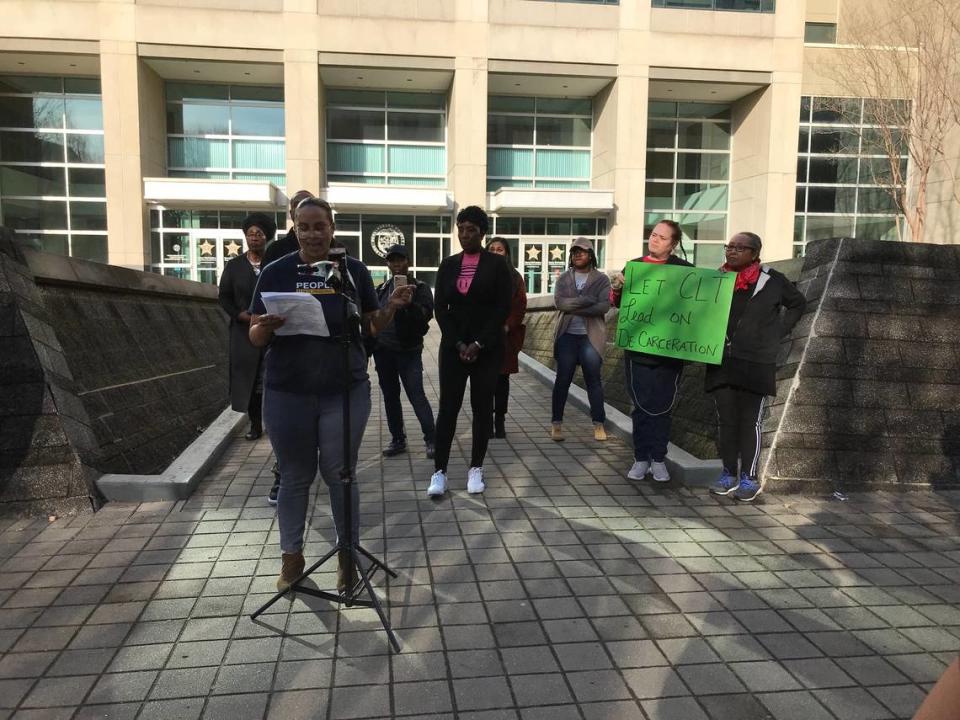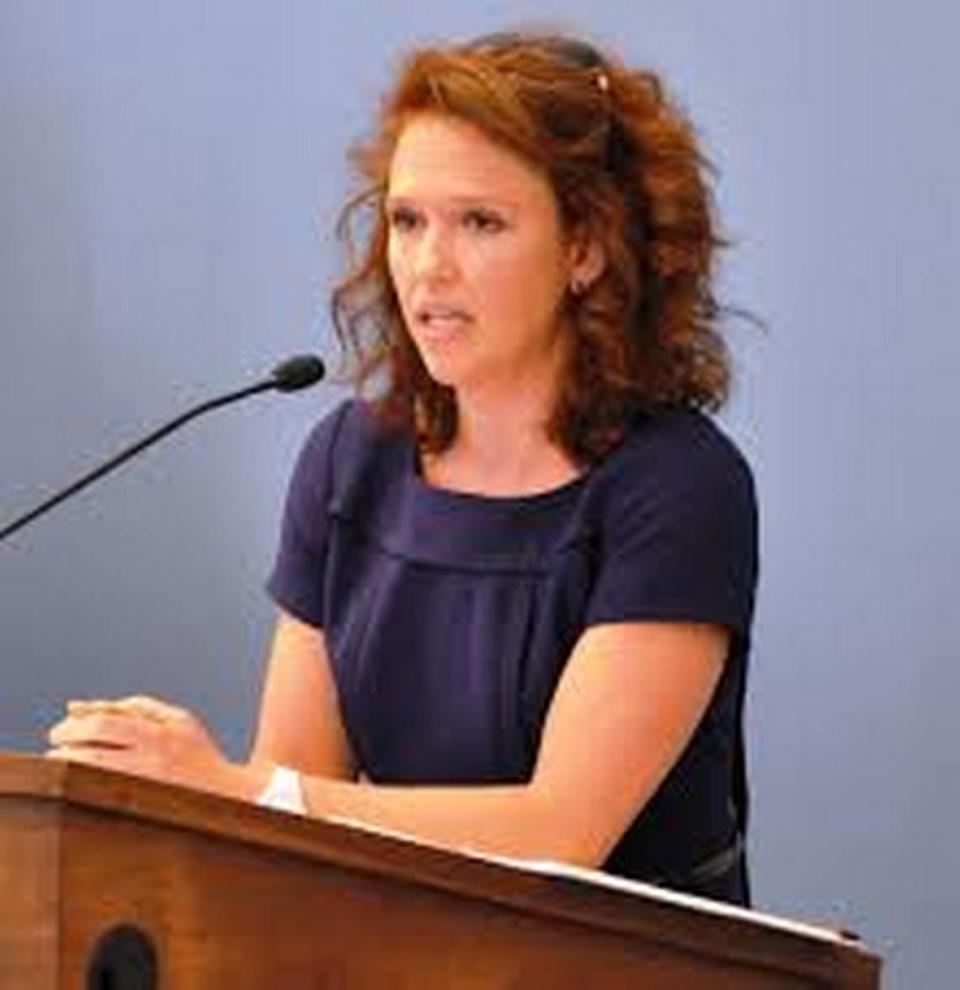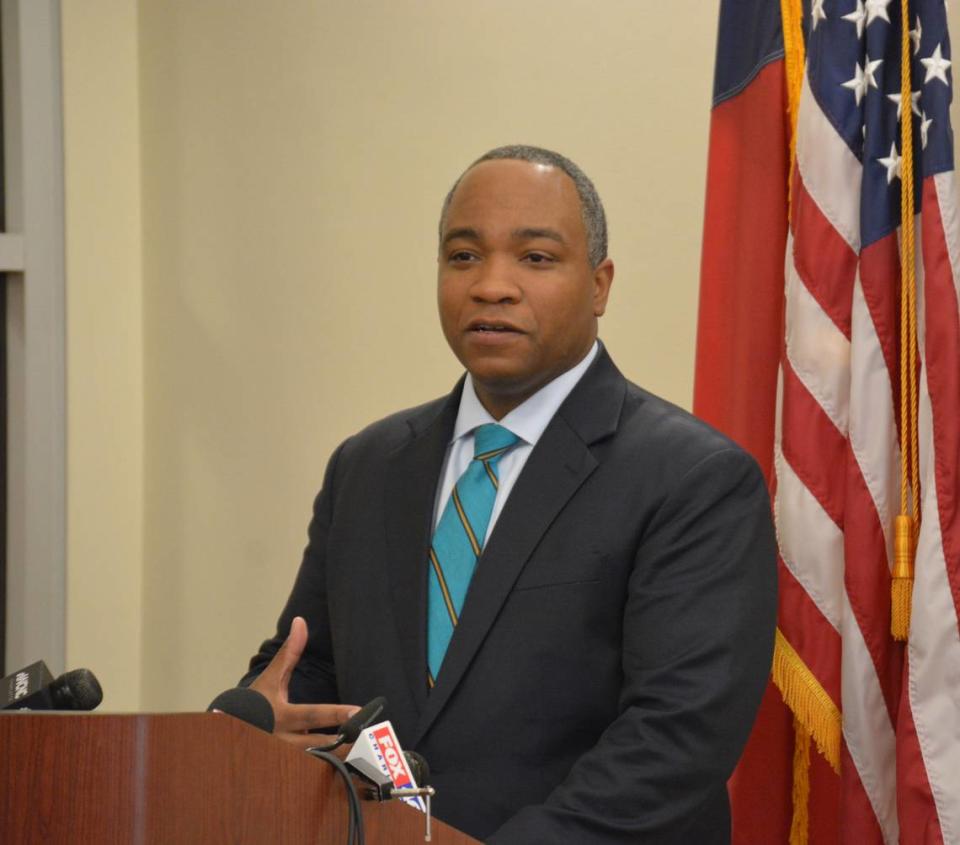Mecklenburg begins releasing jail inmates to avoid cellblock outbreak of COVID-19
As the Carolinas publicly scramble to limit the spread of the coronavirus, Mecklenburg County’s criminal justice system has begun quietly reducing the inmate population at its uptown jail.
As of Tuesday, about four dozen of the jail’s 1,600 occupants have been scheduled for release, part of an ongoing case-by-case analysis by judges, prosecutors and defense attorneys of who needs to be in custody during the emerging pandemic and who does not.
More releases are expected in the coming days.
On Thursday, meanwhile, jail officials announced new steps to prevent the introduction and spread of COVID-19. Healthcare workers will take the temperatures of all who enter the uptown jail and Jail North, including jail employees and attorneys. Those who enter the jail will also be asked screening questions to help determine whether they may carry the virus.
Jails and prisons are seen as particularly high-risk targets of COVID-19, the potentially deadly disease that has claimed thousands of lives worldwide and has now cropped up in all 50 states.
Other U.S. jurisdictions — San Francisco and Philadelphia, among them — have been releasing jail inmates in high-profile efforts to reduce the risk of cellblock outbreaks of the disease.
In North Carolina this week, the state prison system announced it has suspended all visits as a safety precaution.

Meanwhile, the steps to combat the virus at the Mecklenburg Jail have been far more private.
Last week, the county’s judges, prosecutors and public defenders began analyzing the jail’s logs to identify candidates for release, including those being held on low-level or victimless offenses, and others believed to be particularly vulnerable to the disease, Chief District Judge Elizabeth Trosch told the Observer.

District Attorney Spencer Merriweather, among others, said his staff and the public defender’s office have been sifting through a list of 100 jail inmates being held in pre-trial custody on misdemeanor charges as the sides try to balance the inmate’s health risks vs. any threat to public safety.
While most of those under consideration have been accused of minor crimes, Trosch said some may involve inmates charged with felony offenses who are willing to plead guilty.
In cases where the sides disagree, Trosch, Senior Resident Superior Court Judge Bob Bell and other judges decide whether the inmate should be released, Trosch said.
County Public Defender Kevin Tully said authorities must act, given the current health threats.
“Bringing down the population is the only humane response when it comes to this community’s treatment of the human beings currently there,” Tully wrote in an email to the Observer.
Jails, unlike prisons, have hundreds of inmates coming and going throughout the week. The so-called “jail churn” raises the odds that the virus will be introduced.
Assistant Public Defender Michael Kabakoff said Wednesday that the discussions have been fruitful so far.

“We’ve been able to successfully negotiate with the DA’s office on behalf of a significant number of people who are especially vulnerable to COVID-19 or who were being held on low-level charges,” he said.
On Tuesday, a group of lawyers and community activists urged the parties to move faster and do more to limit arrests. Tim Emry, one of the Charlotte attorney’s involved in the effort, said a 60-year-old man was jailed Monday for urinating in public.
“We want them to double down on their efforts. They are not preventing hundreds of people from coming into this jail,” Emry said.
“I’m deeply afraid that if the coronavirus gets into that jail, people are going to die.”
‘Death sentence’
The steps to reduce the jail population have been complicated by a statewide shutdown of virtually all courthouse activities to limit the spread of the virus.
Almost all trials have been delayed for at least 30 days. Bond hearings and arraignments have been sharply cut back. That means that inmates who would otherwise have been released for time served, paid a fine or bonded out continue to stack up in the jail.
Meanwhile, the discussions in Charlotte-Mecklenburg to possibly release them for health reasons collide with growing fears that the pandemic will cause a spike in crime.
Larry Hyatt, the owner of Charlotte’s Hyatt Guns, said his store has seen lines out the door as customers — many of them first-time gun buyers — look for ways to protect themselves.
On Saturday, Hyatt said, the store sold more than 300 guns. It was one of the busiest days in the store’s 61-year history. He estimated that the store has been doing about 10 times the ordinary volume of business in the last few days.
Many buyers, he said, appear to be worrying about an increase in crime as the virus spreads and the economy worsens.
“What I’m hearing people say is that with the virus, the economic meltdown and the inability of government to control gangs and crime when times are good — what are they going to do when times get bad?” Hyatt said.
Merriweather said the first duty of his office is to keep the public safe, and that some of the inmates proposed for release instead should remain in custody.
The group pushing for a faster and expanded inmate release has called for such steps as the freeing of defendants held before trial because they can’t afford bail as well as those most vulnerable to the virus, including older adults, pregnant women and those with compromised immune systems, including inmates who are HIV positive.
They also have called for police to issue citations to misdemeanor offenders rather than send them to jail.
Kristie Puckett Williams, an ACLU of North Carolina official who leads a campaign for judicial reform, offered a dire warning at Tuesday’s press conference.
“Keeping people in jail will be a death sentence,” she said.
Late Wednesday afternoon, the jail reported an inmate death. A sheriff’s office spokeswoman said Willie Frank Burks, 45, was found in his cell midmorning.
There were no signs of foul play or a fever, she said.

